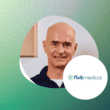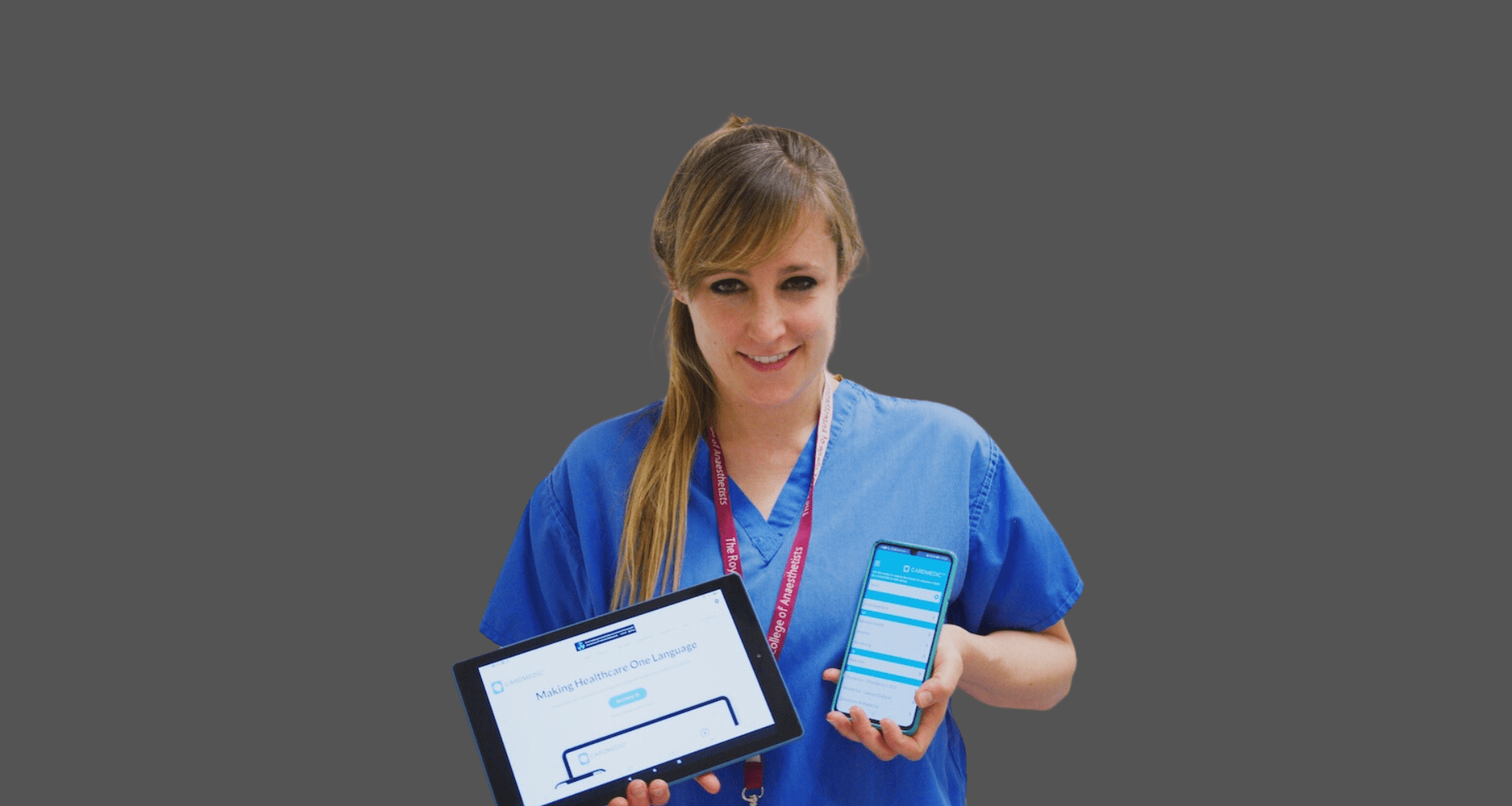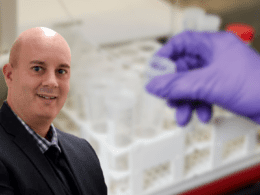Today, we’ll be speaking with Dr Rachael Grimaldi, Chief Executive of CardMedic, a HealthTech scaleup in Oxford in the UK.
Can you introduce yourself and tell us about your role?
My name is Dr Rachael Grimaldi. I’m the co-founder and CEO of CardMedic and an NHS anaesthetist at Great Ormond Street Hospital. I founded the business with my husband Tim during the pandemic, conceptualising and launching it in three days.
CardMedic helps patients and clinicians to communicate across any barrier by offering on-demand access to thousands of pre-scripted clinical conversations in almost 50 languages, as well as various formats such as Easy Read and Read Aloud. Being a clinician, I’ve been able to experience the issues that poor communication in healthcare causes first-hand. This has helped to ensure that CardMedic is built to respond to these challenges in the best way possible. We also have the most amazing team of clinicians working with us to develop the solution, with all of the scripts being clinically peer-reviewed to ensure safety and accuracy.
Overall, we’re helping to improve communication between patients and clinicians, whatever communication barrier they may be experiencing. Doing so empowers underserved patients to take part in shared decision-making in the care planning process, improving patient safety, engagement, experience, and quality of care and ultimately improving health equity. At the same time, CardMedic reduces the burden on stretched health and care professionals and releases time to care by enabling fast and effective communication.
In fact, CardMedic is five times faster than other interpretation methods, making safe and reliable communication possible in an instant. Often, there isn’t time to wait for an interpreter, or they aren’t available, particularly in emergency settings. CardMedic allows us to offer the same standard of care to all patients, irrespective of their communication needs.
How did your company come about, and what was the motivation behind it?
CardMedic was taken from concept to launch in just 72 hours. While in the US on maternity leave at the beginning of the COVID-19 pandemic, I read a story about a critically ill patient who couldn’t understand clinicians through their PPE. The man was terrified of what was going to happen to him, with no way to communicate with his care team effectively. This article struck a chord with me and highlighted that communication barriers are a significant blocker to providing equitable health and care services, and those with additional communication needs have been consistently underserved.
In fact, patients with additional communication needs are more likely to be readmitted to the hospital, stay in the hospital longer, and have poorer health outcomes overall. This is completely unacceptable. I was desperate to help change this and improve care provision and health outcomes for these underserved populations. I also wanted to solve the acute crisis in communication in healthcare with COVID-19 and PPE, which was only exacerbating longstanding communication barriers and making health inequities even more deep-rooted. I realised how much the healthcare system needed a solution like CardMedic, so I set about building the app with my husband, Tim.
Can you describe Card Medic’s mission and values?
The CardMedic team and I are on a mission to create a world where communication isn’t a barrier for any patient. We’re committed to improving health equity to achieve optimal health outcomes for as many people as possible. We understand that while healthcare services are available, not everyone has an equal opportunity to access them, for example, non-English-speaking patients or those with cognitive impairments. So, we built CardMedic to address these gaps, improve health equity, and level the playing field.
To improve health equity, our core purpose is to make CardMedic a vehicle for enabling patient-centred, personalised care and empowering people to take part in decisions about their treatment. Accessibility and inclusivity are at the heart of everything we do. It’s important to us that patients who have additional communication needs are provided with the same standard of care as patients without communication needs. Our scripts are available in a variety of accessible formats so that people can receive health information in a format that they can understand. This is crucial to improving health literacy, another critical mission of ours, which is vital for improving health outcomes.
What are some of the most pressing social issues that Card Medic is working to address through its technology?
Up to 50% of patients have additional communication needs, such as language barriers, deafness, blindness, learning disabilities, cognitive impairments, and illiteracy. Not having resources in place to bridge these communication gaps is contributing to significant health inequities. This also places more pressure on health and care services, as many people are not getting the interventions they need simply because they cannot communicate. These patients suffer poorer health outcomes such as increased morbidity, mortality, mental health issues, poor medication compliance, and higher costs incurred by healthcare providers and payers, which is totally unacceptable in a modern society. CardMedic is designed to support this underserved group of patients by providing health information in a format that they can understand, helping them take control of their health, which in turn will improve their outcomes and reduce pressure on services.
What’s more, patients immediately forget up to 80% of the information they’re told in a consultation, and nearly half of the information retained is incorrect. CardMedic helps to overcome this by providing digital flashcards in accessible formats that patients can revisit in their own time when they’re feeling less stressed. This improves patients’ health literacy and empowers them to take part in shared decision-making about their care. When 20% of readmissions to hospitals are due to a communication issue, getting it right really couldn’t be more critical.
How does your company measure the impact of its work in creating positive change?
We have conducted multiple evaluations with our customers to understand the impact that CardMedic is having, from short-term evaluations to time-in-motion studies. University Hospitals Sussex NHS Foundation Trust found that using CardMedic helped to increase patient confidence in their care by almost a third, from 67% to 93%. The trust also discovered that using CardMedic was five times faster than other interpretation services, which meant that healthcare staff were able to communicate more quickly and effectively with their patients and provide them with the care they needed more quickly. Improving this trust and confidence is so important, especially when underserved populations can sometimes struggle to engage and have reported not feeling listened to by staff.
A short-term evaluation study was also conducted by the University Hospitals of Leicester NHS Trust, and it was found that CardMedic has helped reduce anxiety for maternity service users. This is because CardMedic’s library of pre-written scripts has allowed healthcare staff to explain procedures to service users and ensure that they understand their treatment, and therefore alleviate some of their concerns during and after their pregnancy. By ensuring that new and expecting parents feel heard and understood by their healthcare providers, CardMedic has ultimately instilled a sense of reassurance and confidence and helped to make sure having a baby is the exciting life event it should be.
In your opinion, what impact will technology have in creating a better future?
I think technology has an incredibly important role to play. We’re in a really exciting period at the moment, with some incredible innovations emerging across the tech space. From my perspective in HealthTech, I am surrounded by incredible people who are solving some of the biggest challenges in the sector. We’re very lucky to have brilliant networking opportunities and access to invaluable mentorship programmes; the ones I’ve been on have been instrumental in making CardMedic what it is today. However, it is the people behind the technology that will make it so impactful. It’s important not to get caught up in the technology hype cycle and stay focused on the problem you’re trying to solve with it.
What advice do you have for other companies looking to use tech for good and positively impact the world?
One of the most important pieces of advice I’d give anyone looking to create and scale a technology solution is to seek out good mentors. Joining industry accelerators and mentorship programmes has been a game-changer, as it’s enabled me to build a strong network with other innovative entrepreneurs with whom I’ve been able to learn and exchange ideas. I’ve met members of our own team through these programs, so I can’t recommend them enough.
The most important thing to remember is to fall in love with your problem, not your solution. Innovators need to understand the real issues faced in their sector to create meaningful change rather than focusing on the solution they’ve created. Everything we make can be improved and adapted, and they should as our sectors evolve. For me in healthcare, the landscape is always changing, with new goals to meet, and it’s important that our solution can adapt to these changes, evolving to meet the needs of the people we serve. It’s the only way we will be able to make a real difference.
Card Medic was recently crowned the HealthTech Winner of the Super Connect for Good 2023 Competition by Leeds Teaching Hospitals NHS Trust’s Innovation Pop-up and Leeds City Council for the initiative powered by Empact Ventures and Hays










